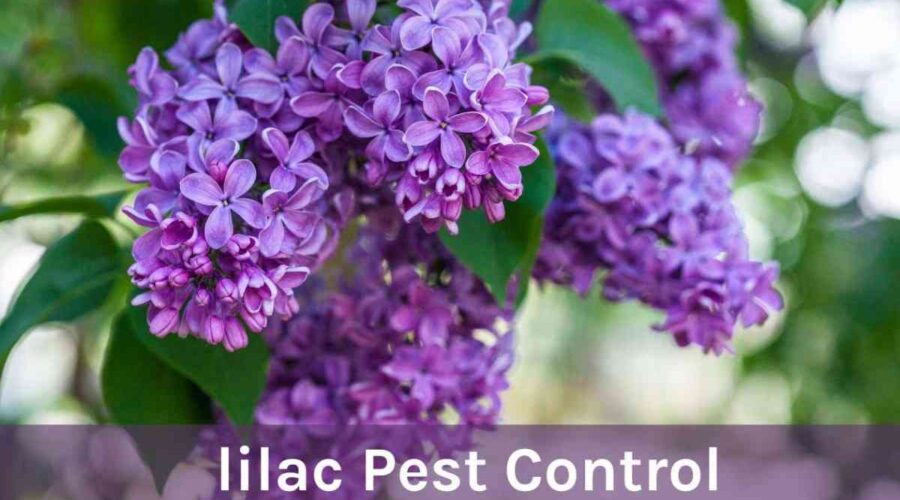Do Lilacs Need Pest Control: What You Need to Know
Do Lilacs need Pest control?’ Lilacs are one of the best garden plants, with superb flowers and a sweet scent that attracts the gardener’s and visitor’s senses alike. However, while lipids beautify one’s outdoors, the flowers are loved for their enticing, fragrant shapes-a blessing to their growers-which also attract pests who threaten their health and vitality. Do lilacs need Pest control? The short answer is yes. Although lilacs are hardy plants, they are subject to certain pest species that can do considerable damage if not addressed in good time. In this blog, we’ll explore the pests that commonly attack lilacs, how to protect them from pest damage, and what the best pest control methods for lilacs are so that you always have lilacs blooming year after year.
What Lilacs Attract Pests?
Lilacs are relatively low-maintenance, but like any plant, they are subject to a variety of pests. The flowers and leaves release a scent that is conducive to attracting insects, especially in the warm months. To address the question of “which lilacs attract pests?”, it’s mainly due to the fact that the pests are drawn to the sweet-smelling, tender foliage of the plant. Lilacs are a comfortable habitat for many insects, ranging from aphids to borers, to feed and nest. While a few are benign, others are unduly harmful and may wreak havoc upon your lilacs by stunting growth or, worse still, killing the plant.
Common Pests Found on Lilacs
When it comes to lilac pest control, it’s important to know which pests commonly infest these shrubs and Do Lilacs need Pest control. Here are the most common culprits:
Aphids: They are small insects that pose a serious threat to lilacs. It sucks juices from the leaves and curls them, yellows them, and eventually causes them to fall off. They also excrete honeydew, which ends up attracting mold and other pests.
Lilac borers: Lilac borers’ larvae bore into the stems of the plant, causing a lot of damage to the entire structure and preventing nutrient flow. This could weaken and eventually kill it.
Japanese beetles: These beetles are shameless eaters, eating foliage off lilacs and other plants. Damage may leave the leaves skeletonized and badly affect the health of the plant.
Scales: Scales are another common lilac pest. These pests attach to the branches and leaves, causing yellowing and stunted growth, and sucking the sap out of the plant.
By knowing which pests may attack your lilacs, you can spot the first signs of infestation and take timely lilac pest control.
How to Protect Lilacs from Pests
Plant care and routine administration activities will ensure the lilacs do not suffer from pest infestations. Some of these include the following:
1 Regular Inspection: Inspect lilacs for the following signs of pest activity: wilting leaves, visible insects, or blackened spots resulting from mold. Early detection makes it much easier to manage these pests.
2 Keep Plants in Good Condition: A plant that is in good condition will attract fewer pests. Water the lilacs properly, provide good drainage, and plant them where they would have adequate exposure to sunlight. Cut any dead or broken parts of the plant to promote new growth and increase airflow.
3 With Organic Means: Chemical pesticides are harmful, but there are various organic alternatives against lilac pest control. Neem oil and insecticidal soap are recommended as natural cures for aphids, scales, and other pests.
4 Benefit by Beneficial Insects: Different insects feed on aphids and other pests. When you think of pest control, introduce or cultivate them in the garden so that they can reduce pest numbers.
Common Lilac Pest and Control Methods
When dealing with lilacs and pest control, it’s important to know which pests require immediate attention and how to handle them:
Aphids: Control aphids on lilacs with insecticidal soap or neem oil; both simple yet effective ways of suffocating the insects to keep plants unharmed. Lightly spray the leaves with a strong stream of water to dislodge and wash the aphids.
Lilac Borers: To rid the plant of lilac borers, prune out the wilted branches. If the disease is left for too long, you might have to turn to an insecticide to stop the young larvae from boring even deeper into the plant.
Japanese Beetles: Hand-picking the beetles off the clean lilacs can be effective if done often. Alternatively, resort to a pheromone trap that could lure and trap these beetles before they start meaning well.
Scale Insects: Remove scale insects by scraping them off with a soft-bristled brush or cloth. Additionally, problems with scale can be taken care of by applying horticultural oil to suffocate them.
Recommended Pest Control Products for Lilacs
A variety of pest control products can help combat pests on lilac plants, including the following:
- Neem oil is a proven natural insecticide. Neem oil is safe on most plants and can effectively fight aphids, borers, and scale insects.
- Insecticidal soap is itself an effective remedy for soft-bodied pests such as aphids and mealybugs. It is also harmless to lilacs and will not harm the plant.
- Pyrethrin-based insecticides might be necessary for severe infestations; these chemistries will kill many insects, including beetles and borers, but they should be carefully monitored so they do not affect other beneficial insects.
- Horticultural oil is great for suffocating scale insects, aphids, and other pests; it simply coats the pests, preventing them from breathing and killing them.
While choosing insecticides appropriate for the lilacs, selection of safe products is crucial, both for the plant and itself. Read the application and instructions always to avoid overuse that might harm your garden and solve the question Do Lilacs need Pest control.
Conclusion
In conclusion, do lilacs need pest control? Absolutely. While lilacs are beautiful and resilient plants, they can be vulnerable to a variety of pests. Identifying these pests early and employing effective lilac pest control methods is essential to keeping your plants healthy. By inspecting your lilacs regularly, using organic pest control options, and applying the right products, you can ensure your lilacs remain pest-free and continue to enhance the beauty of your garden.
If you’re looking for professional assistance with lilac pest control in South Carolina, contact GOGETFIX today. Our experienced team is ready to help you protect your plants and maintain a pest-free garden. Call us now for a consultation!



